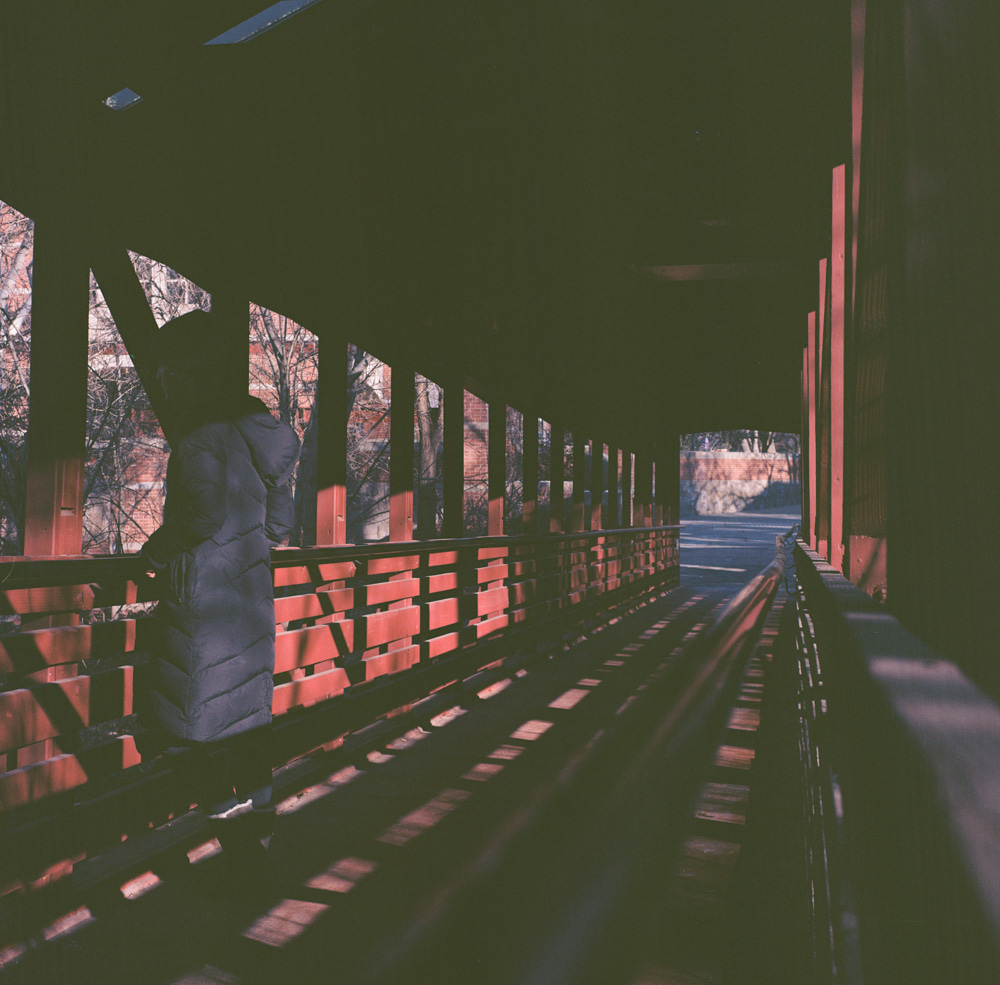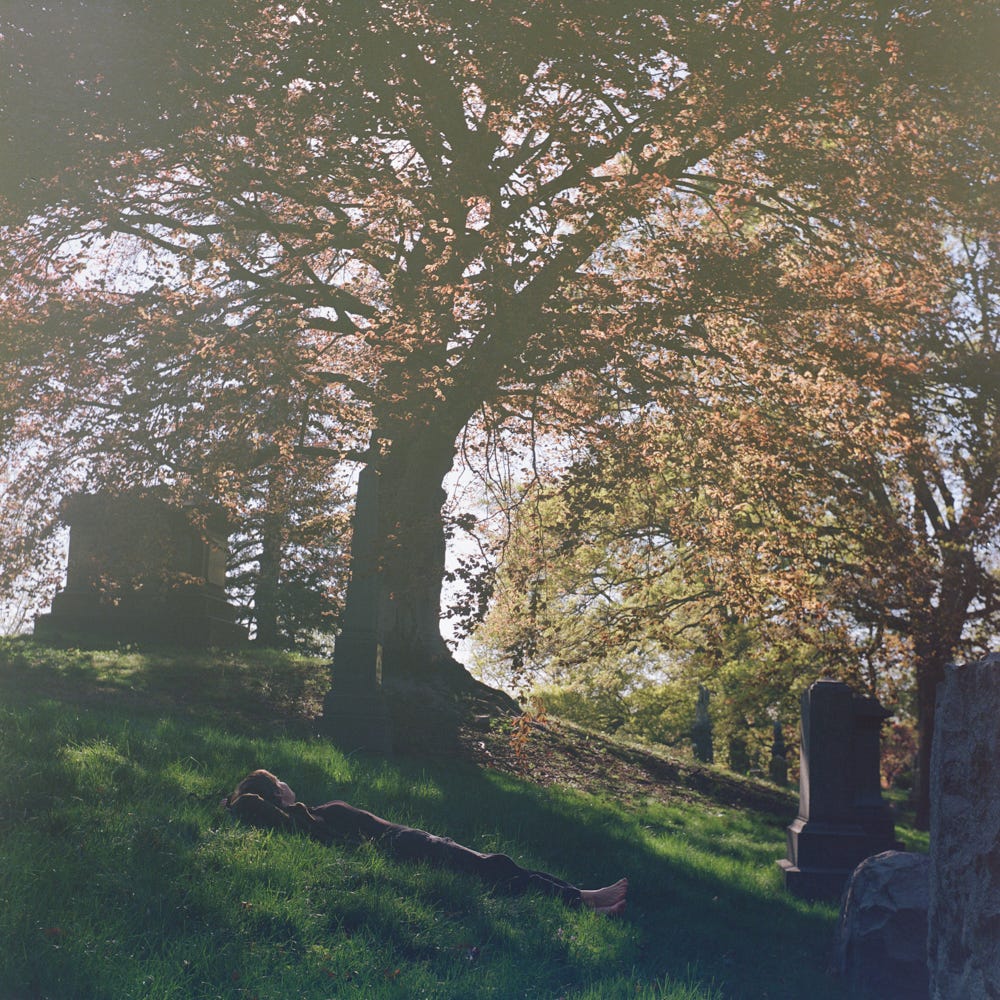A True Life Built is a living photo essay on starting over and building a truer life. It’s for anyone, at any age, who is finding the courage to begin again. Subscribe for free weekly posts.
Twenty months after I left Nairobi, my divorce finally ended. I had prepared, as much as I could, for the legal process, but I was utterly blindsided by the aftermath.
The week the settlement was finalized, I ran the New York marathon, finishing in a personal best. I floated through the city, high-fiving friends and beaming the entire way. And then, after crossing two major finish lines in one week, I crashed—spectacularly hard.
I had been running 150 miles a month, from Brooklyn to Manhattan and back again, trying to outpace my own thoughts. I had to keep moving, to keep coping, to keep it together. And then, suddenly, I didn’t anymore.
As I came down from survival mode, I slowly released my iron grip on my emotions—and the fear I’d been holding back broke through in a wild flood. Three weeks later, on my fortieth birthday, I was diagnosed with post-traumatic stress disorder, or PTSD.
“Well, hell,” I thought. “Happy birthday to me.”
I had decided to do a formal assessment for PTSD with my therapist because I needed a way to understand the monsters that were waking.
The nightmares had surged first. Night after night, I dreamed that I was back in Nairobi, screaming and running for a plane. Then the vertigo joined the fun, an old stress signal from my college days. Whenever I touched a tricky memory, the room would spin. It felt like trying to sleep when you’ve had too much to drink—except I hadn’t been drinking and this was no party.
I’ve always been healthy, and a deep sleeper, and this was not a version of myself I recognized. The diagnostic was clear. My score was not extreme, but it was unambiguous: the name for what was happening was PTSD.
I want to say clearly upfront: I have lived a fortunate life, I was raised with love, and I’ve never been physically harmed. Nairobi is not the source of my trauma, simply a setting for it. There is no victim here, or villain, just hard things that happened because that’s how life is sometimes.
I feel the need to add these disclaimers because “trauma” is a loaded term these days, both too big and too small at once. Trauma can describe something truly horrific or be tossed around so casually that it means nothing at all. A therapist explained it to me like this: There’s ‘big T’ Trauma, like war, ‘little t’ trauma, like middle school.
Mine fell somewhere in the middle. I pictured veterans at one end of the spectrum and tweens on TikTok at the other, but I knew no stories of the spaces in-between.
Like many people during the pandemic, I’d read The Body Keeps the Score, and the basic premise resonated: scary events that aren’t properly processed hang around in your body, surging when they shouldn’t. But I didn’t see myself in the stories of extreme trauma and I worried I was overreacting.
I downplayed my symptoms because I relied on my sense of competence and I couldn’t bear to feel weak. I side-stepped them because I felt ashamed, afraid to be seen as dramatic. But mostly I avoided the issue because if I accepted that fear was still lodged in my body, I would have to admit how vulnerable I had once felt—and how alone.
People can bounce back from all kinds of horrid stuff if they feel they have support, but when you feel alone, the fear sticks. In World War II, the British moved millions of children into the countryside for their safety. But those kids did worse than those who stayed in the city, even with bombs falling, because they didn’t have their families for comfort.
Here’s how I think about it: trauma is born from a real fear of harm that switches on your body’s alarms. If you can re-establish a sense of safety and connection, that fear will pass. If you can’t, that fear codes deep in your brain and reminders of that moment will forever feel unsafe.
Put another way, trauma is when sharp memories get stuck in your body. PTSD is when those shards of the past intrude on your present again and again.
For me, trauma wasn’t born in a bomb going off. It was born in the need to be the steady one in crisis after crisis, suppressing my fear and managing others’ pain along with my own. It was holding secrets for people I loved because sharing would be shameful. It was burying bad things so deep I didn’t even record them in my journals.
Trauma didn’t play out like I saw on TV either. I didn’t recoil at loud noises or lash out in anger. Instead I buried my fear in overachieving at work. It looked like crying on the floor between calls, and sometimes on them, on mute so no one would hear.
It felt like the wall between the past and the present grew terribly thin, and small things could tip me back without warning. One moment I would be walking down my normal Brooklyn block; the next moment I would be sitting on the sidewalk, hyperventilating. Tripwires lurked in the most banal places: in the smell of jasmine that had grown by our Nairobi gate, the taste of curry, a flash of bougainvillea.
My triggers were food and flowers, for crying out loud. How was I supposed to avoid that?!
The mother of all triggers was returning to Nairobi, home of my current job and former spouse. Seven months after first using the term PTSD, even seeing photos of the city sparked panic. But when our Nairobi offices re-opened at work, I marched into my therapist’s office and spelled out how I could travel back for team meetings, how I could manage it, how I’d be fine.
“That’s all very rational,” she said carefully, “but how do you think you’ll feel going back?”
In response to her question, I had a full-blown panic attack, and curled up in a ball on her couch while the world did loop-de-loops. When I could sit upright again, I sobbed straight through our remaining hour and used her entire box of tissues.
“It would probably feel a little like that,” I finally said.
To drive the point home that night, my nightmares staged a grand finale. By morning, I’d had enough. I knew I couldn’t go back to Nairobi, but I resented the knowledge bitterly. I hated asking for a health exemption when I had barely ever taken a sick day. When I finally sent the medical note to my boss, I felt like I had swallowed lead.
“I hate this so much!” I wailed to a friend after I hit ‘send’. “I feel like I’m broken.”
“That’s a lot to carry,” she said gently. “I wonder if ‘injured’ could replace ‘broken’ in that narrative. Injuries heal, albeit nonlinearly. You wouldn’t run on an injured leg.”
In July, I told my boss I wouldn’t be returning to Nairobi. Last week, I wrote a tidy ending to this piece: after I made that decision, the nightmares finally stopped. I went for four weeks feeling better. “Hallelujah!” I thought. “So glad I’m through with that.”
This week, when I returned to work, my vertigo surged again. Last night, I shot out of bed at 1 a.m., afraid someone was trying to get in my apartment. I was at my front door, my heart pounding, ready to defend myself, before I was even fully awake. The sound had been from a garbage truck. This morning, I re-read the paragraph above where I said “I don’t recoil at loud noises,” and laughed.
“Sweet body,” I said, “how long must we do this to ourselves?”
“As long as it takes for you to listen,” it replied.
Pain and hypervigilance is my body’s way of asking for attention. Here’s what it’s telling me: As long as I try to power through, to push back against my symptoms, I am keeping myself stuck. The vertigo and nightmares are not a weakness, but a truth my body is speaking. My body is trying to keep me safe, and I’m trying to find compassion.
I don’t know—can’t know—what weeks will be heavy, or what insignificant things, like an offhand comment on a call, will cause my symptoms to surge. As much as I desperately want to, I cannot will myself well.
But here’s what I do know: I know that I am not broken and I know that PTSD is not forever. I know what helps on weeks like this: skilled therapy; journaling to clear my mind; yoga and acupuncture to ground me in my body; and long walks outdoors to ground me in nature.
Most of all, I know that I am no longer alone. If loneliness makes the fear stick, then connection is the antidote. This week, when the old pain surged, I reached out to people I trust and said, “I’m struggling, this feels too heavy.”
“I’m glad you reached out, and I’m here to help you carry it,” they replied. “I see you, I hear you, and I love you.” And that is making all the difference.
One of the unexpected joys of starting over has been hearing from others on similar journeys. If something resonates with you, I’d love for you to leave a comment, drop me an email or share a post with a friend!
Liz is a writer and photographer based in Brooklyn. She’s spent her career finding the right words for others and now she’s finding her own.










Your courage to name and share is astounding, Liz. I don’t know any stories of spaces in-between, as well, and it’s need for us humans. Your strength in your recovery and healing is connecting me to my own. Thank you for that gift.
I see you, I hear you, I love you.
This is an orchid of an essay: tall and proud, fragile and beautiful, and so wise and kind.